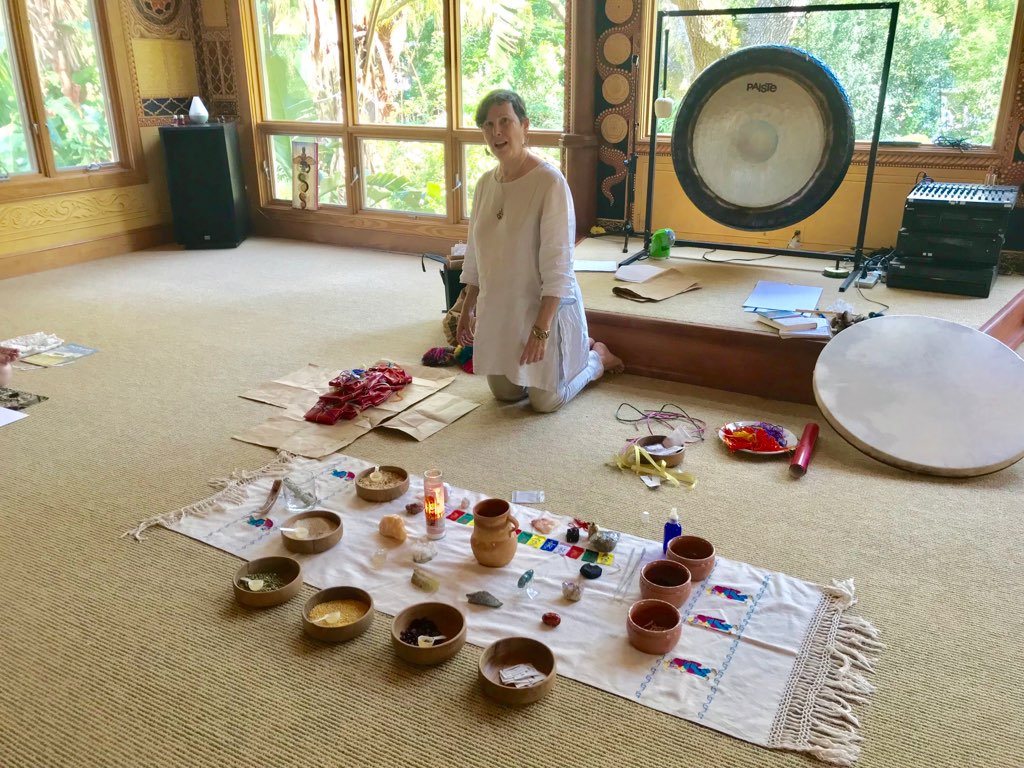
The Quechua speaking Q’ero people of Peru, descendants of the mighty Incas, live on some of the most rugged and isolated land in the Andes. They fled to this remote cloud shrouded region to escape the Spanish invasion of the 1530s and, by doing so, retained their freedom. It is this isolation which also helped to preserve their cultural traditions. Many Q’ero today live much as their ancient ancestors did prior to the Spanish invasion.
However, some Spanish influence is evident. The word despacho, Spanish for dispatch is seen in the name of an important Q’ero sacrament. In the despacho ceremony thanks is given to all of panchamama, mother earth. All energies are brought into balance including relationships with the natural world, our communities and other personal relationships, and with ourselves. Despacho ceremonies are performed for transitions, marriages, births, deaths, healings, and agricultural cycles.
Universal energy is understood to be a benign force that only becomes harmful when out of balance. Balance can be reestablished by through ceremony. In the Q’ero worldview, humans are one with nature, not looking in from outside but an integral part of this complex and beautiful living whole. Life itself is one continuous grand ceremony that has other ceremonies nested within it.
There are three types of despacho ceremonies, the ayni as described below, the kuti despacho ceremony, for dispelling evil intent, and the aya despacho ceremony for honoring the dead.
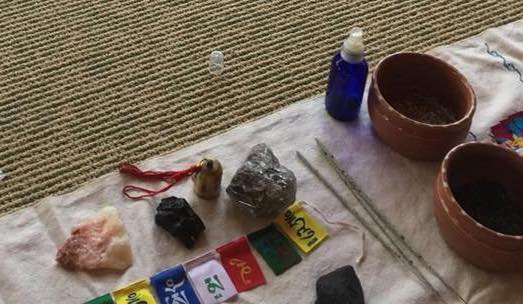
I was privileged to take part in an ayni despacho ceremony that was lead by a Q’ero wisdom keeper or paco (priest) on a mountainside outside of Cusco, Peru. Here, in a sanctified environment where the paco had called in the spirits, it seemed we were touching the celestial realm of the gods. I also sensed the gods reaching down touching us, wrapping around us, and reaching through us. Throughout the ceremony the recognition that All is One and that the benevolent energy that permeates everything everywhere awaited our sincere involvement in ceremony to bring the energies of All in to balance.
When our own energy is out of balance, the negativity that produces is
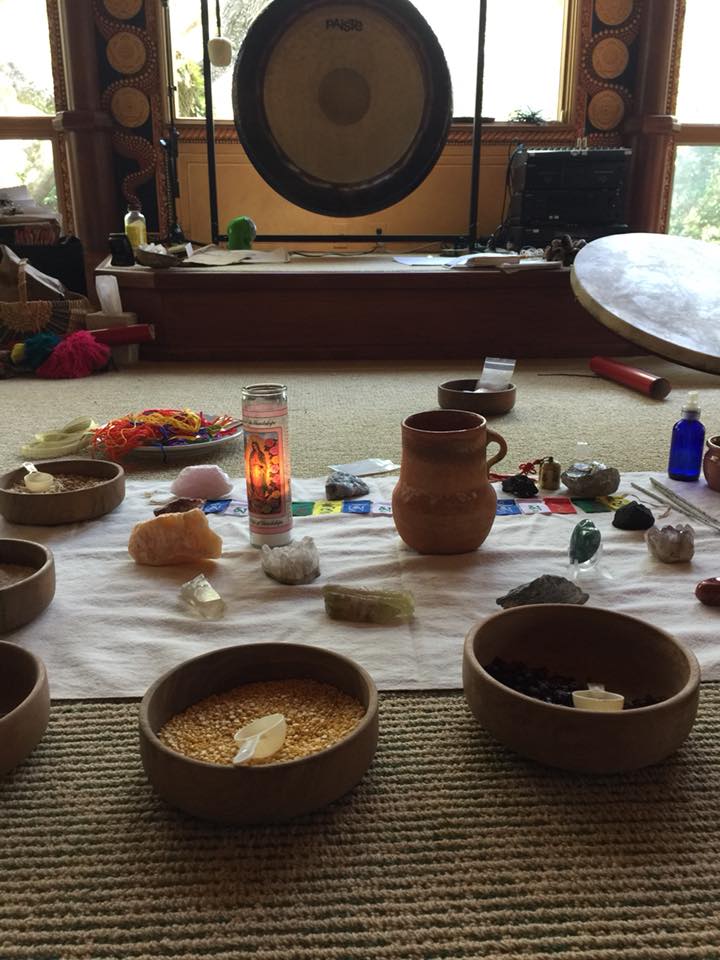
reflected back into our lives. Ayni is fundamental to Q’ero life. It is translated as reciprocity. Our ‘ayni,‘ as the Q’ero refer to our interconnectedness, needs to be brought back into balance. This is done through an ayni despacho ceremony where the spirit living spirit, infused into the prayer bundles and the gifts within the bundles, express gratitude and love to panchamama. Life’s energy is blown into the bundles from the lips of each participant. When the energetic shift produced through the process of the ceremony occurs, a natural harmonious balance between us and the universe is reestablished, positive forces reign in our lives. Our soul has been made anew.
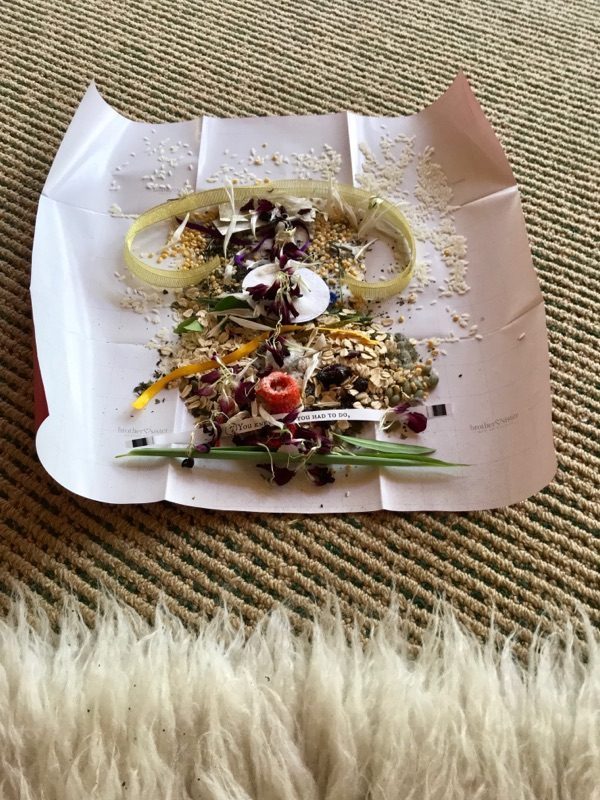
A despacho packet is constructed by laying out a large piece of paper in which the blessed offerings placed on it are wrapped up. Each item placed on the paper is thoughtfully selected, has a prayers blown into it, and is then placed on the paper.
For the Q’ero, coca leaves are extremely significant. This traditional plant food provides nutrients, has medical properties, and has great cultural and spiritual significance. A trinity of these coca leaves, or a kintu, is believed to receive prayers unconditionally and also aid in sending those prayers out into the cosmos. The kintu is the initial offering in a traditional despacho. On top of this, offerings of sugar, corn and other seeds, beans, flowers, metallic items to represent the sun or moon, minerals, candy, paper objects, and fat are made. Each item is blessed with prayer before it is placed in the packet.
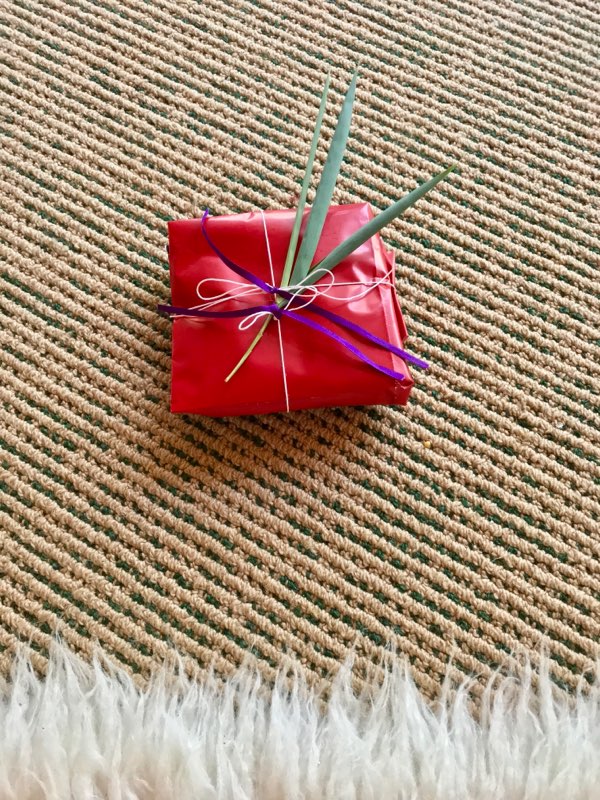
When the packet is complete, it is tied up, and each participant blows their blessings and love into it once again before it is buried, burned, or placed in a large body of moving water. Just as the grains of colored sand in a mandala all carry the energy and prayers of the participant in the ceremony out into the universe, so too with the despacho packet.
As a result of this profoundly moving experience of the relationship forged with Panchamama, the simple straightforward nature of the ceremony, the sincere and unpretentious manner of the wisdom keeper, and the undeniable perception that an animated energy permeates everything, a burning desire to share the powerfully transformative experience with others formed within me.
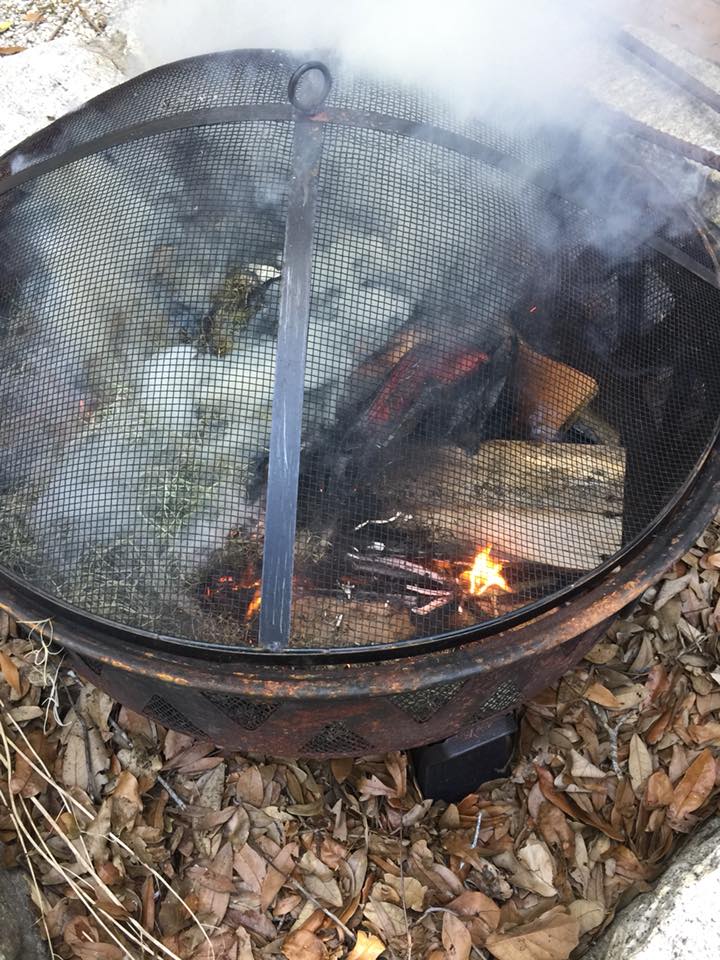
Perhaps some day I will rediscover prints of the photos taken during my time in Peru, before digital cameras come into my life. For now, within this article, here are a few photos from a ayni despacho ceremony I lead at the Baba Siri Chand Ashram in Altamonte Springs.
If you would like a despacho ceremony performed for you, please contact me by text at 407-520-2594 for more information.
Blessings, Barbara